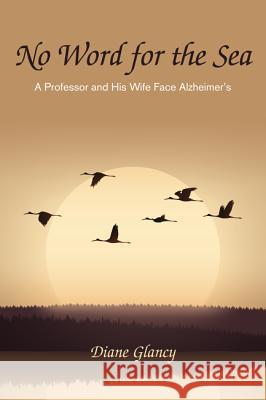No Word for the Sea » książka
No Word for the Sea
ISBN-13: 9781532632525 / Angielski / Miękka / 2017 / 186 str.
No Word for the Sea
ISBN-13: 9781532632525 / Angielski / Miękka / 2017 / 186 str.
(netto: 86,64 VAT: 5%)
Najniższa cena z 30 dni: 89,96
ok. 16-18 dni roboczych.
Darmowa dostawa!
No Word for the Sea is built on several layers of questioning: What is language? What is memory? Where does the mind go when the circuits shut down? The novel covers seven years in the lives of Solome and Stephen Savard in St. Paul, Minnesota. Stephen is provost at Cobson College, and Solome has raised three children. The events alternate between Stephen's first-person narrative and Solome's third-person narrative in accord with the breaking text of their lives. ""Once there was a common Indo-European language with words for winter and horse, but no word for the sea."" The history of the English language has an inland origin. As they find themselves stranded in the destructive effects of Stephen's Alzheimer's, there also is an exploration of resolution that comes from such an experience. Mark 8:36 asks, ""What does it profit a man if he gain the whole world, and lose his own soul?"" No Word for the Sea asks, ""What if a man gains his soul, but loses the world?"" ""No Word for the Sea reconceives Alzheimer's disease within the context of Christianity and its counter-narrative of healing and hope. Perhaps the lost memories of Alzheimer's patients exist forever in the memory of God. 'Maybe Stephen was remembering somewhere. . . . Maybe consciousness was a part of the larger universe. A part of God' (234). No Word for the Sea is theologically rich, beautifully written, essential reading for courses in medical humanities."" --Emily Griesinger, Azusa Pacific University Diane Glancy is professor emerita at Macalester College. She has published six books with Wipf & Stock-- Uprising of Goats (2014), One of Us (2015), Ironic Witness (2015), Mary Queen of Bees (2017), and The Servitude of Love (2017).
No Word for the Sea is built on several layers of questioning: What is language? What is memory? Where does the mind go when the circuits shut down? The novel covers seven years in the lives of Solome and Stephen Savard in St. Paul, Minnesota. Stephen is provost at Cobson College, and Solome has raised three children. The events alternate between Stephens first-person narrative and Solomes third-person narrative in accord with the breaking text of their lives. ""Once there was a common Indo-European language with words for winter and horse, but no word for the sea."" The history of the English language has an inland origin. As they find themselves stranded in the destructive effects of Stephens Alzheimers, there also is an exploration of resolution that comes from such an experience. Mark 8:36 asks, ""What does it profit a man if he gain the whole world, and lose his own soul?"" No Word for the Sea asks, ""What if a man gains his soul, but loses the world?""""No Word for the Sea reconceives Alzheimers disease within the context of Christianity and its counter-narrative of healing and hope. Perhaps the lost memories of Alzheimers patients exist forever in the memory of God. Maybe Stephen was remembering somewhere. . . . Maybe consciousness was a part of the larger universe. A part of God (234). No Word for the Sea is theologically rich, beautifully written, essential reading for courses in medical humanities."" --Emily Griesinger, Azusa Pacific UniversityDiane Glancy is professor emerita at Macalester College. She has published six books with Wipf & Stock-- Uprising of Goats (2014), One of Us (2015), Ironic Witness (2015), Mary Queen of Bees (2017), and The Servitude of Love (2017).











